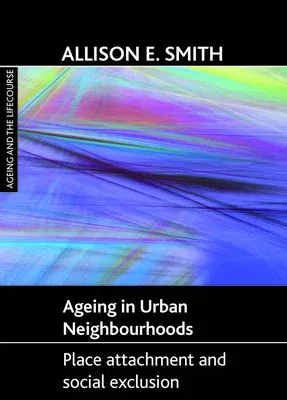Allison E Smith
(Author)Ageing in Urban Neighbourhoods: Place Attachment and Social ExclusionPaperback, 2 September 2009

Qty
1
Turbo
Ships in 2 - 3 days
In Stock
Free Delivery
Cash on Delivery
15 Days
Free Returns
Secure Checkout

Part of Series
Ageing and the Lifecourse
Print Length
248 pages
Language
English
Publisher
Policy Press
Date Published
2 Sep 2009
ISBN-10
1847422705
ISBN-13
9781847422705
Description
Product Details
Author:
Book Format:
Paperback
Country of Origin:
GB
Date Published:
2 September 2009
Dimensions:
23.62 x
16.76 x
1.52 cm
ISBN-10:
1847422705
ISBN-13:
9781847422705
Language:
English
Pages:
248
Publisher:
Series:
Weight:
439.98 gm